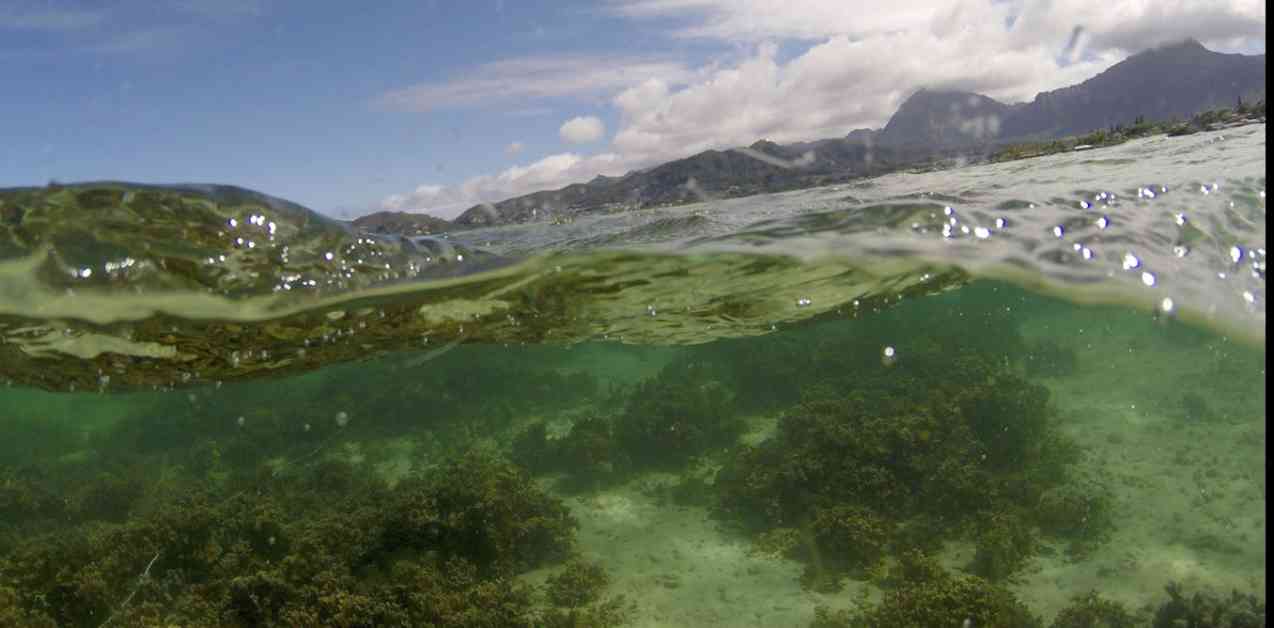Climate change is a topic that continues to dominate global conversations as scientists and researchers strive to understand its impact on the world around us. One area of particular interest is the effect of climate change on marine ecosystems, specifically the role of prokaryotes, the oldest microorganisms on Earth.
Prokaryotes: The Unsung Heroes of the Ocean
Prokaryotes, which include bacteria and archaea, may be tiny in size, but they play a crucial role in maintaining the delicate balance of marine ecosystems. These microscopic organisms are found across the globe, from the depths of the ocean to the polar regions. Despite their minuscule size, prokaryotes make up a significant portion of life in the world’s oceans, comprising about 30% of all marine life.
Their abundance is staggering, with approximately two tonnes of marine prokaryotes existing for every human on the planet. These organisms are essential in supporting the nutrient needs of fish that humans rely on for food. Prokaryotes grow rapidly, emitting a substantial amount of carbon in the process. In fact, marine prokaryotes in the top 200 meters of the ocean produce about 20 billion tonnes of carbon annually, double the amount emitted by humans.
The Impact of Climate Change on Prokaryotes
Recent research has shed light on how prokaryotes respond to climate change, revealing some surprising findings. While many marine species are expected to decline in biomass with rising ocean temperatures, prokaryotes seem to be climate change winners. For every degree of ocean warming, the biomass of prokaryotes is projected to decrease by only 1.5%, significantly less than the 3-5% decline predicted for larger plankton, fish, and mammals.
This means that as the oceans warm, prokaryotes are likely to dominate marine environments even more, potentially shifting the balance of marine ecosystems. With a greater share of available nutrients and energy going towards prokaryotes, the supply of fish that humans rely on for sustenance may be reduced. Additionally, the increase in carbon production by prokaryotes in warmer oceans could hinder the ocean’s ability to absorb carbon emissions, complicating efforts to achieve global net-zero emissions.
The Global Implications of Prokaryote Dominance
The potential dominance of prokaryotes in marine ecosystems could have far-reaching consequences for global food security and climate change mitigation efforts. As prokaryotes continue to thrive in warmer ocean temperatures, the supply of fish, a crucial protein source for billions of people worldwide, may decline. This decline in fish populations could pose a significant challenge for global food supply, particularly for communities that rely heavily on seafood for nutrition.
Furthermore, the increased carbon output by prokaryotes could impact the oceans’ capacity to absorb human emissions, making it more difficult to achieve global climate goals. The projected declines in global fish stocks under climate change may be underestimated if the restructuring of marine food webs in favor of prokaryotes is not taken into account. It is essential for scientists and policymakers to consider the changing role of prokaryotes in marine ecosystems when planning strategies for climate change adaptation and mitigation.
As we grapple with the complexities of climate change and its impact on marine ecosystems, it is crucial to continue studying and understanding the role of prokaryotes in maintaining the balance of the world’s oceans. While uncertainties remain about how these tiny organisms will adapt to changing environments, ongoing research and monitoring efforts are essential to inform future conservation and management strategies.
In conclusion, the resilience of prokaryotes to climate change highlights the need for a comprehensive and holistic approach to understanding and addressing the challenges posed by global warming. By recognizing the critical role of these microscopic organisms in marine ecosystems, we can better prepare for the changes that lie ahead and work towards a more sustainable future for our planet.













